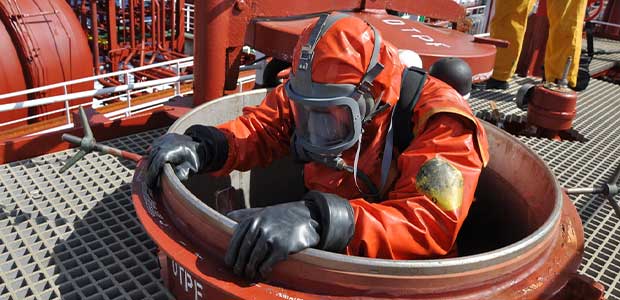
U.S. Department of Labor Intends to Protect Midwest Workers from Confined Space Hazards
The Regional Emphasis Program was created to reduce employees’ harm when working in the transportation tank cleaning industry.
- By Shereen Hashem
- Aug 06, 2021
Two people died after being exposed to toxic fumes. An Ohio worker was cleaning a chemical tanker trailer when it collapsed while entering the tank. A nearby truck-driver came to help, both facing the fatal consequences. In Illinois, a worker opened a lid of a tanker trailer containing toluene and was soon found unresponsive lying across the open dome. He survived after being rushed to the nearest hospital and survived after being treated for respiratory failure and cardiac arrest.
The double fatality and serious injury are among the 23 worker deaths and 97 incidents that OSHA’s Chicago region investigated in transportation and tank cleaning industries since 2016. OSHA found common violations while investigating. The most common was failure to prevent the inhalation of harmful substances and to follow procedures for permit-required confined space requirements.
As mentioned in the press release, reducing the risks tank cleaning workers face led to Chicago regional officers establishing a Regional Emphasis Program. “The program will focus on employers in industries typically engaged in tank cleaning activities, including trucking, rail and road transportation, remediation services, material recovery and waste management services.”
“OSHA often finds employers who use transportation tanks fail to test atmospheric conditions inside the tankers, complete confined space entry permits and use adequate respiratory protection before allowing cleaning workers to enter,” said OSHA's Acting Regional Administrator William Donovan in Chicago. “These companies can prevent injury, illness or worse by implementing safety and health programs and training workers to identify hazardous conditions and use required protective measures to protect workers from harm.”
The first phase of the program will focus on informational mailings to employers, professional associations, local safety councils, apprentice programs, local hospitals and occupational health clinics. OSHA presentations to industry organizations and stakeholders will also be conducted. Following its three-month outreach, the program empowers OSHA to schedule and inspect targeted industries in Illinois, Ohio and Wisconsin and those under federal jurisdiction in Indiana, Michigan and Minnesota.
Transportation tanks on trucks or railcars must be cleaned and inspected regularly and before their next use. Workers who clean these tanks are at risk for exposure to deadly hazards caused by toxic fumes from chemicals, decaying crops, waste and other substances. This could potentially lead to suffocation, fires and explosions.
About the Author
Shereen Hashem is the Associate Content Editor for Occupational Health & Safety magazine.